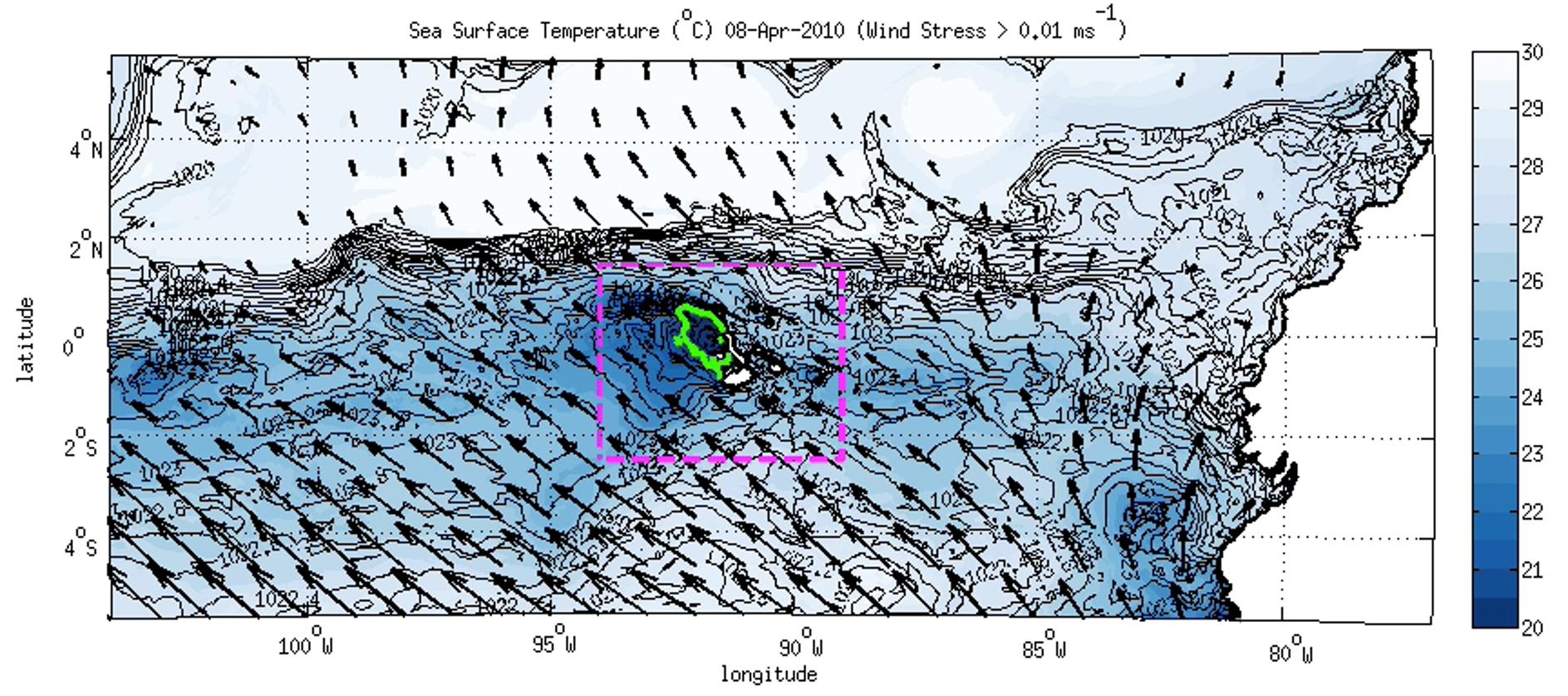R-GEMS, funded by the Royal Society
Building Resilience in Galapagos Ecosystem Management to Severe Climate Change
Alberto Naveira Garabato (Principal Investigator)
with Alex Hearn, Carlos Mena, Diana Pazmino (Co-Is, Universidad San Francisco de Quito, Ecuador), Marc Rius, Alex Forryan (UoS)
Project summary: The R-GEMS project will define, quantify and provide mechanistic understanding of the processes governing the variability in the phytoplankton biomass sustaining the unique ecosystem of the Galápagos Islands’ upwelling plume. The project will also assess the most likely evolution of the main environmental controls of the regional ecosystem over the next 50 years (2020-2070).

The waters surrounding the Galápagos Archipelago (GA), located ~600 miles to the west of mainland Ecuador, are an iconic and globally significant biological hot spot. The region features an exceptionally productive and distinctive ecosystem that is sustained by upwelling events – upward surges of deep, cold, nutrient-rich waters (collectively referred to as the GA upwelling plume) that fuel the growth of the phytoplankton biomass upon which the entire ecosystem thrives.
A foremost challenge in sustainably managing the extraordinary natural resources of the GA upwelling plume against the mounting pressures of human exploitation and development is the acute episodicity and climate sensitivity of upwelling events . Variations in the frequency and intensity of upwelling events have in the past brought about abrupt (and sometimes irreversible) perturbations in the region’s ecosystem state and fisheries yields, leading to a call for generating a predictive strategy to anticipate and mitigate the potentially severe conservation and socio-economic impacts of changes in upwelling. The pressing need for building resilience in the management of the GA upwelling plume’s ecosystem is underscored by projections of global climate change over the 21 st century – which single out the eastern Equatorial Pacific as one the areas of most pronounced warming on Earth, and indicate that the frequency and severity of regional climate extremes (largely associated with the El Niño - Southern Oscillation) will increase as the planet warms.
In this project, we will respond to this need by generating the critical knowledge base and tools required for Ecuador to achieve effective conservation governance, and a sustainable stewardship of the marine resources, of the GA upwelling plume against the rising threat of severe climate change. We will do this by (i) determining the key environmental controls of the fish populations dominating the GA’s marine ecosystem dynamics, and the regional and national economy; and (ii) assessing the most likely evolution of those environmental controls over the next 50 years. We will engage with a range of major stakeholders to ensure that our predictive system and its outcomes are readily taken up by the teams responsible for developing and implementing climate resilience policies in GA waters.
References
Back to Research